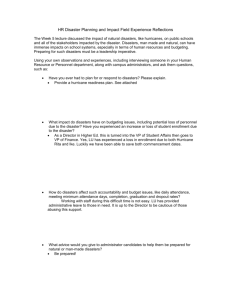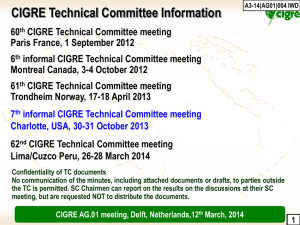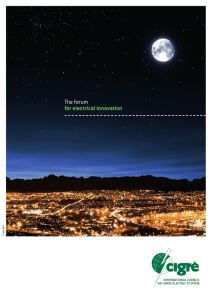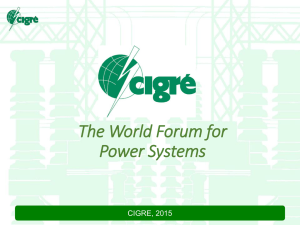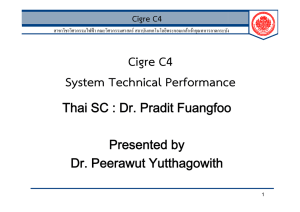Context of a Disaster
advertisement
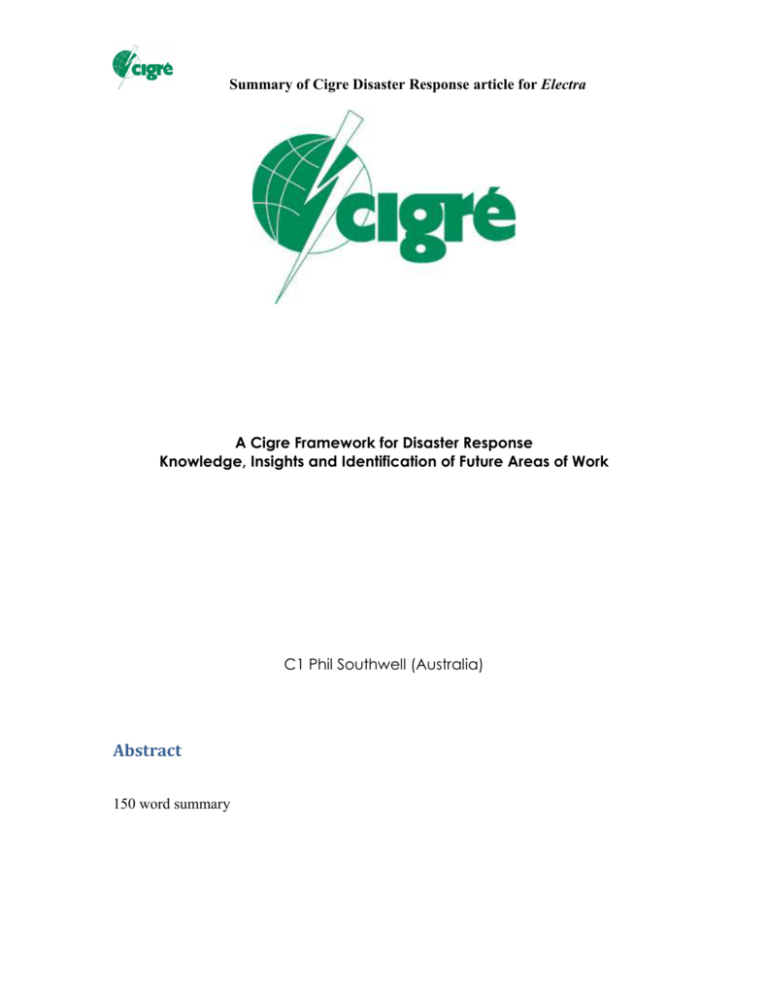
Summary of Cigre Disaster Response article for Electra A Cigre Framework for Disaster Response Knowledge, Insights and Identification of Future Areas of Work C1 Phil Southwell (Australia) Abstract 150 word summary Summary of Cigre Disaster Response article for Electra Introduction Responding to major disasters is a challenge which many Cigre members probably dread, but could experience during their working lives Many areas of Cigre’s work consider an aspect of a disaster, i.e. SC C2 System Operation and Control (Management of disturbance and restoration situations), but these are often a specific sub-component rather than the entire spectrum of the disaster response This article will use existing Cigre work, related to disasters, to prepare a strategic overview, as well as propose a new framework for approaching disaster recovery Based on a high-level, strategic overview of disasters, a gap analysis of Cigre activities will be conducted to identify future areas of work Terminology and Definitions Depending on culture and official terminology a disaster may be referred to as a crisis, or catastrophic incident which can cause serious phsical damages to the energy system. This paper will use disaster to describe all of the above terms Context of a Disaster Numerous global examples of disasters exist, but the frequencies in specific locations are extremely limited. These events are referred to as once in a hundred or thousand year incident or as a freak occurrence. As disasters have an impact well beyond normal incidents and interruptions, it is difficult for utility operators and management to be trained to respond to such a scenario Often senior management (while in their executive roles) will only experience a single disaster Many informal mechanisms exist which disseminate learnings across countries between similar electricity utility sectors and from other industries Once a disaster begins, unless a strategic approach is already in place, there will be a narrow focus on immediate post-disaster actions. A strategic approach will assist the medium and longer-term responses and give management a framework to apply lessons from previous disasters Communication during disasters is a key point Summary of Cigre Disaster Response article for Electra Case Studies A selection of case studies will be used to illustrate the variety of disasters and the lessons from selected examples. This will include, but is not limited to: Brazil: generation shortfall Spain: Cyclone Klaus Japan: tsunami maybe we can consider the tripping of lines after avalanches / icing i.e. in Canada A New Framework To assist future Cigre work a broader framework of a disaster, from the initial hours following the incident to years (or perhaps a decade afterwards), will be created. Its basic outline is as follows: Immediate post-disaster Plan Recover (short-term) (medium-term) (long-term) Matters to be considered include: Techniques to manage disasters and then restoration Communication Societal security and incident management; ISO/PAS 22399 Planning in advance: resilience to natural hazards: UK National Grid Existing Cigre Work A review of e-Cigre alongside an email to SC chairs will help map the current and planned Cigre work in this area A Road Map for Cigre Future work priorities of Cigre will be identified, using the framework which incorporates existing Cigre work
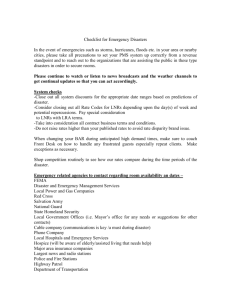
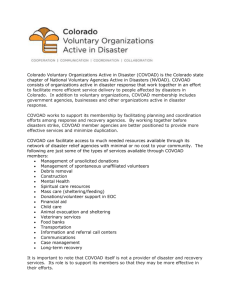
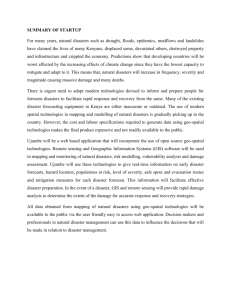
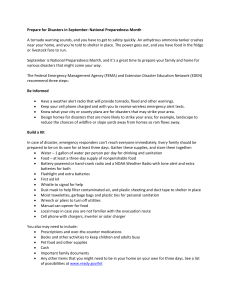
![Annex-1 Country Report Format [Word/27KB]](http://s3.studylib.net/store/data/007746618_2-5274716d2b8745578e5f33948d9d09db-300x300.png)
